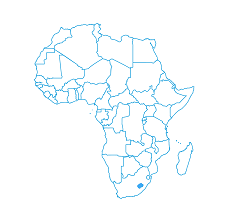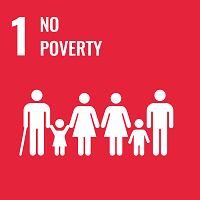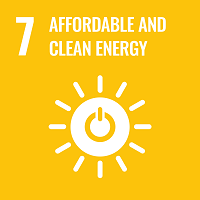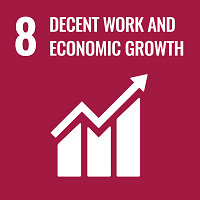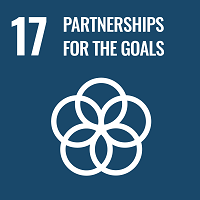Supports Lesotho's conditional NDC (2018) target to reduce GHG emissions by 35% by 2030 and install 1MW of solar PV mini-grids in rural areas. Ha Makebe is well aligned with Lesotho’s National Energy Policy (2015), which aims to increase private sector engagement in energy sector development, especially renewable energy mini-grids.
Ha Makebe, Lesotho
The second phase of a pioneering solar mini-grids project in Lesotho is underway following the completion of a pilot project funded by REPP in Ha Makebe village, north-east of Maseru.
Lesotho is one of the least electrified countries in the world, with a rural electrification rate estimated at below 20% – and solar mini-grids offer an opportunity to serve difficult-to-access locations. To date, over 200 households and business customers in and around Ha Makebe have been connected to electricity for the first time following the construction of the country’s first ever private mini-grid.
Construction of the 50kWp solar mini-grid was made possible thanks to an LSL7m (Lesotho loti) loan from REPP in October 2018. This followed a pioneering effort to secure Lesotho’s inaugural mini-grid concession by Sotho Minigrid Portfolio SPV (Pty) Ltd, a special purpose vehicle (SPV) owned by OnePower Lesotho (Pty) Ltd.
The funds were made available in local currency, which was a notable first for REPP and provided the developer with greater resilience against fluctuating exchange rates.
The pilot mini-grid in Ha Makebe was completed in 2021 and has since paved the way for the development of a larger portfolio of 10 additional mini-grids in rural service territories after REPP and the EU-funded Electrification Financing Initiative (EDFI ElectriFI) jointly invested LSL 150m (~ EUR 10m) in equity and senior debt into the SPV in early 2022.
The pilot mini-grid and those of the planned larger portfolio are solar PV hybrids with battery storage and limited LPG backup generation. The hybrid nature of the design is to ensure 24-hour, year-round electricity supply, including Lesotho’s harsh winters.
As of 31 March 2023, 4 of the 10 new sites had achieved hot commissioning before the facilities are put into full operation. Once all 10 mini-grids are fully operational, they will provide low-cost, consistent and usually first-time electricity access for up to an estimated 8,000 households, as well as small enterprises, schools, and seven health clinics. To date, 214 construction jobs have been created through the project, of which 185 were held by local people.
Completion of the mini-grids will demonstrate the technical and commercial viability of the project at scale and will help to develop a viable business model that can be replicated in other rural, off-grid villages. In the process, the project will assist in building local capacity, develop local skills and contribute to socio-economic development.
Funding structure
Pilot mini-grid phase
Signed: 2 October 2018
Type: Convertible loan
REPP funding: LSL 7m
Phase two
Signed: 24 December 2021
Type: Equity and senior debt
REPP funding: LSL 75m
REPP has been a critical partner to 1PWR for several years and the REPP team’s ongoing support and dedication to our mission enabled us to close on our landmark mini-grid transaction in Lesotho, which will bring electricity access to more than 30,000 people. We are proud of our partnership with REPP and look forward to our continued cooperation to bring clean and affordable electricity services to communities in Lesotho.- Matt Orosz, CEO, OnePower Lesotho Ltd

